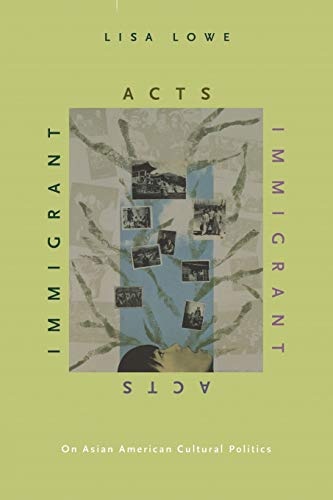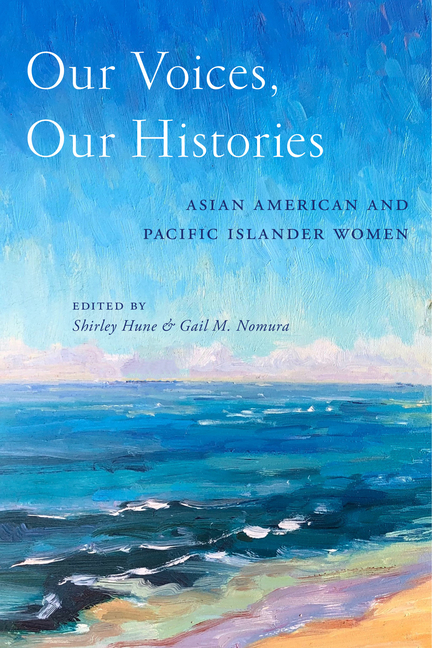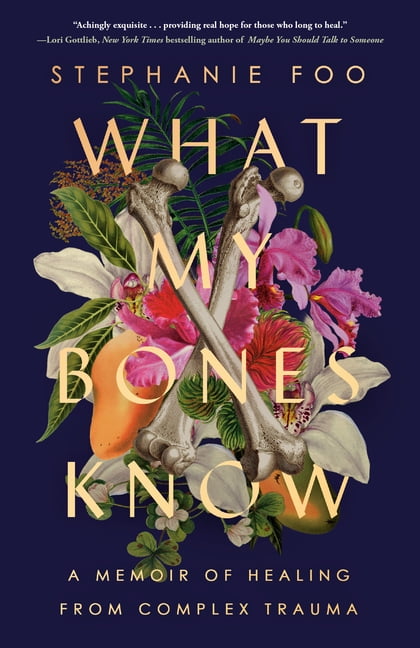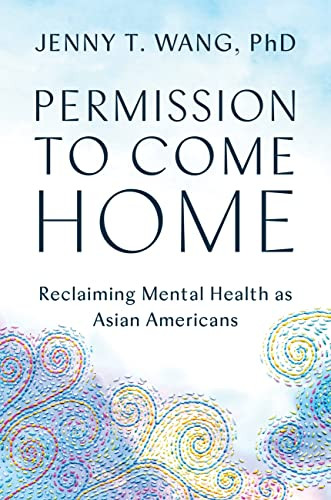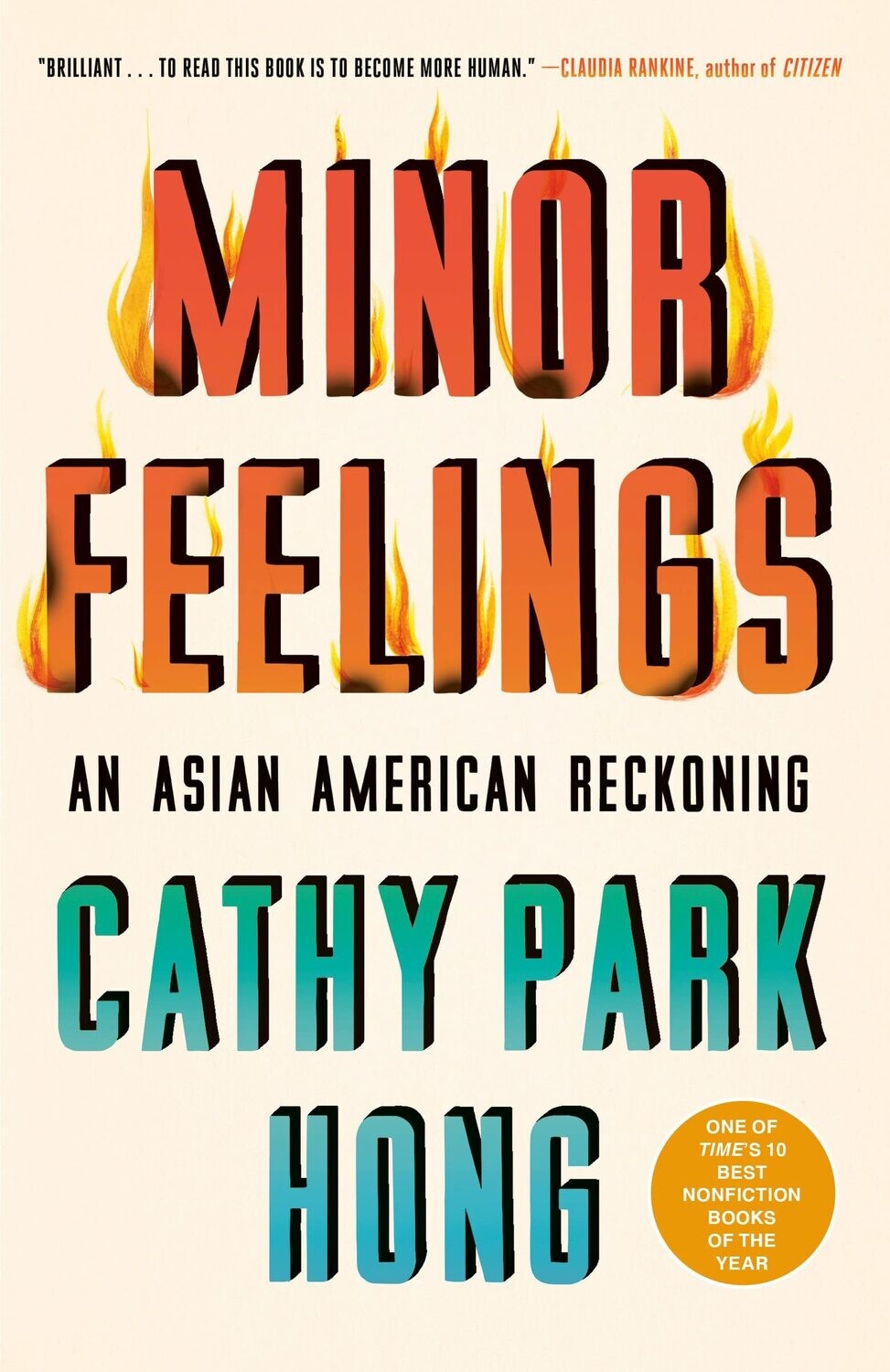Asian American Pacific Islander Reading List
Understanding Anti-AAPI Racism: A Long History
This book shows how generations of Asian immigrants and their American-born descendants have made and remade American life in the U.S.: indentured “coolies” who worked alongside African slaves in the Caribbean; and Chinese, Japanese, Filipino, South Asian, and Korean immigrants who were recruited to work in the U.S. only to face, exclusion and violence. Over the past 50 years, a new Asian America has emerged out of the arrival of immigrants and refugees and community activism.
The political ferment of the 1960s produced the Civil Rights Movement, and in its wake, women’s liberation, gay rights, Chicano power, and the Asian American Movement. This is a definitive history of the social movements that knit a disparate and isolated set of communities into a political identity–and along the way created a racial group who had been lumped together as “Oriental.” The Asian American Movement was an unabashedly radical movement, sprung from campuses and city ghettoes, allied with Third World freedom struggles.
Lisa Lowe argues that understanding Asian immigration to the United States is fundamental to understanding the racialized economic and political foundations of the nation. Lowe discusses the contradictions whereby Asians have been included in the workplaces and markets of the U.S. nation-state, yet, through exclusion laws and bars from citizenship, have been distanced from the terrain of national culture.
Ocean Passages considers how Indigenous Pacific scholars emphasize the importance of the ocean to Indigenous activism, art, and theory. Suzuki addresses the refugee passage and the history and experiences of peoples displaced from the Pacific Islands; and migratory circuits and the labors required to cross the sea. Suzuki explores what new ideas, alliances, and flashpoints might arise when comparing and contrasting Asian and Pacific Islander passages across a shared sea.
Lisa Lowe examines the relationship between Europe, Africa, Asia, and the Americas in the late 18th and 19th centuries, exploring the links between colonialism, slavery, imperial trades, and Western imperialism. Lowe argues that race and social differences are remainders of the colonial process through which “the human” is universalized and “freed”, while the people (BIPOC groups) who create the conditions of possibility for that freedom, are forgotten.
This volume explores AAPI women’s lives along local, transnational, and global dimensions. The contributions present new research on diverse aspects of Asian American and Pacific Islander women’s history, from the politics of language, to the role of food, to experiences as adoptees, mixed race, and second generation.
Asian American and Pacific Islander Mental Health
Eng and Han draw on case studies of first and second generation Asian Americans from the mid-1990s to the present, exploring their psychic and social predicaments, ranging from depression, suicide, and the politics of coming out to broader issues of the model minority stereotype, transnational adoption, colorblind discourses, among others, in the U.S. They develop concepts of racial melancholia and racial dissociation to investigate changing processes of loss associated with immigration, displacement, diaspora, and assimilation.
Chung examines how second-generation children negotiate the complex and conflicted feelings they have toward their family responsbilities and upbringing. She reveals how Chinese and Korean Americans assemble fragments of their childhood memories, kinship narratives, and racial myths to make sense of their family experiences–yet at a social and psychological cost. Saving Face not only gives readers a new appreciation for the often painful generation gaps between immigrants and their children, but it also reveals the love, empathy, and communication strategies families use to help bridge those rifts.
In this deeply personal and thoroughly researched account, Foo returns to her hometown of San Jose, California to investigate the effects of immigrant trauma on the community, and she uncovers family secrets in the country of her birth, Malaysia, to learn how trauma can be inherited through generations. She discovers that, ultimately, you don’t move on from trauma, but you can learn to move with it. What My Bones Know is a brave narrative that reckons with the hold of the past over the present, the mind over the body–and examines one woman’s ability to reclaim agency from her trauma.
“Finally, a volume on mental health and well being of Pacific Island people written from the point of view of their own world view. A rich and substantive contribution for understanding mental health issues, concepts, and interventions within the cultural context of Pacific Islander history, culture, and the emerging challenges posed by rapid social change. This is essential reading for… audiences seeking to understand better the complex cultural tapestry and way of life of the many different people who inhabit the vast area of the Pacific Ocean and its countless islands.” –Anthony J. Marsella, Emeritus Professor, Department of Psychology, University of Hawai`i
Despite the fact that 18 million Asians live in the U.S. today, they are the racial group least likely to seek out mental health services. As Asian Americans investigate the personal and societal effects of longstanding cultural narratives suggesting they take up as little space as possible, their mental health becomes critically important. Dr. Jenny Wang explores a range of life areas that call for attention, offering readers the permission to feel, question, rage, say no, take up space, choose, play, fail, and grieve. Above all, Wang offers permission to return closer to home, a place of acceptance, belonging, healing, and freedom.
Where I Belong shows us how the cycle of trauma can play out in our relationships, placing Asian American experiences front and center to help us process and heal from racial and intergenerational trauma. They provide essential therapeutic tools, reflection questions, journal prompts, and grounding exercises to empower readers to identify their strengths and resilience across generations to embrace the beauty and fullness of their own identity and culture.
Khúc traces the contemporary Asian American mental health crisis from the university into the maw of the COVID-19 pandemic, reenvisioning mental health through a pedagogy of unwellness—the recognition that we are all differentially unwell. Khúc draws linkages between student experience, the Asian immigrant family, the adjunctification of the university, and teaching methods pre- and post-COVID-19 to illuminate hidden roots of our collective unwellness: shared investments in compulsory wellness and meritocracy. Interspersed throughout the book are reflective activities, including original tarot cards, that enact the very pedagogy Khúc advances, offering readers alternative ways of being that divest from structures of unwellness and open new possibilities for collective care.
Memoirs, Essays and Poetry
Bui’s memoir traces her family’s daring escape after the fall of South Viet Nam in the 1970s and their effort to build new lives for themselves in America. Bui documents parental sacrifice, excavates family histories, and grapples with the inherited struggles of displacement and diaspora. Dissatisfied with the limits of oral history, Bui turns toward the illustrative genre as a way to weave the personal, political, and historical.
Hong defines “minor feelings” as occurring when American optimism contradicts your own reality–when you believe the lies you’re told about your own racial identity. Minor feelings are not small–they are dissonant–and in their tension Hong finds the key to the questions that haunt her. Hong uses her own story as a portal into a deeper examination of the American consciousness today.
A poetry collection that captures the experiences of being a young Pakistani Muslim woman in contemporary America. Orphaned as a child, Asghar grapples with coming of age and navigating questions of sexuality and race without the guidance of a mother or father. These poems at once bear anguish, joy, vulnerability, and compassion, while also exploring the many facets of violence: how it persists within us, how it is inherited across generations, and how it manifests itself in our relationships.
Kaur declares that revolutionary love is the call of our times, a radical, joyful practice that extends to others, our opponents, and to ourselves. It enjoins us to see no stranger but instead look at others and say: You are a part of me I do not yet know. She draws from her own journey as a brown girl growing up in California farmland; as a young adult galvanized by the murders of Sikhs after 9/11; as a law student fighting injustices in American prisons and on Guantanamo Bay; to uncover practices of revolutionary love to bring us longevity, resilience, and joy. See No Stranger is a practical guide to changing the world, a synthesis of wisdom, a chronicle of personal and communal history.
In the eyes of 18-year-old Hua Hsu, Ken represents all that he defines himself in opposition to. But despite his first impressions, Hua and Ken become friends, a friendship built on late-night conversations, long drives, and the successes and humiliations of college life. And then violently, senselessly, Ken is gone, killed in a carjacking, not even three years after the day they first meet. Determined to hold onto all that was left of one of his closest friends, Hua turned to writing. Stay True is a bracing memoir about growing up, and moving through the world in search of meaning and belonging.
The daughter of intellectual and Palestinian advocate Edward Said, Najla Said grew up in New York City, confused and conflicted about her cultural background and identity. Said knew that her parents identified deeply with their homelands, but growing up in Manhattan, a place largely defined by class and conformity, she felt unsure about who she was supposed to be. Said denied her Palestinian-Lebanese roots to herself, until the psycholgical toll of her self-hatred began to threaten her health. As she grew older, she eventually came to see herself, her passions and her identity more clearly. Today she is a voice for second-generation Arab Americans.
Out of a harrowing childhood in the Philippines, Cinelle Barnes emerged triumphant. But as an undocumented teenager living in New York, her journey of self-discovery was just beginning. Lyrical, emotionally driven, and told through stories both lived and overheard, Cinelle’s intensely personal, yet universal, exploration of race, class, and identity redefines what it means to be a woman―and an American―in a divided country.
First published in 1943, this classic memoir by well-known Filipino poet Carlos Bulosan describes his boyhood in the Philippines, his voyage to America, and his years of hardship and despair as an itinerant laborer following the harvest trail in the rural West.


